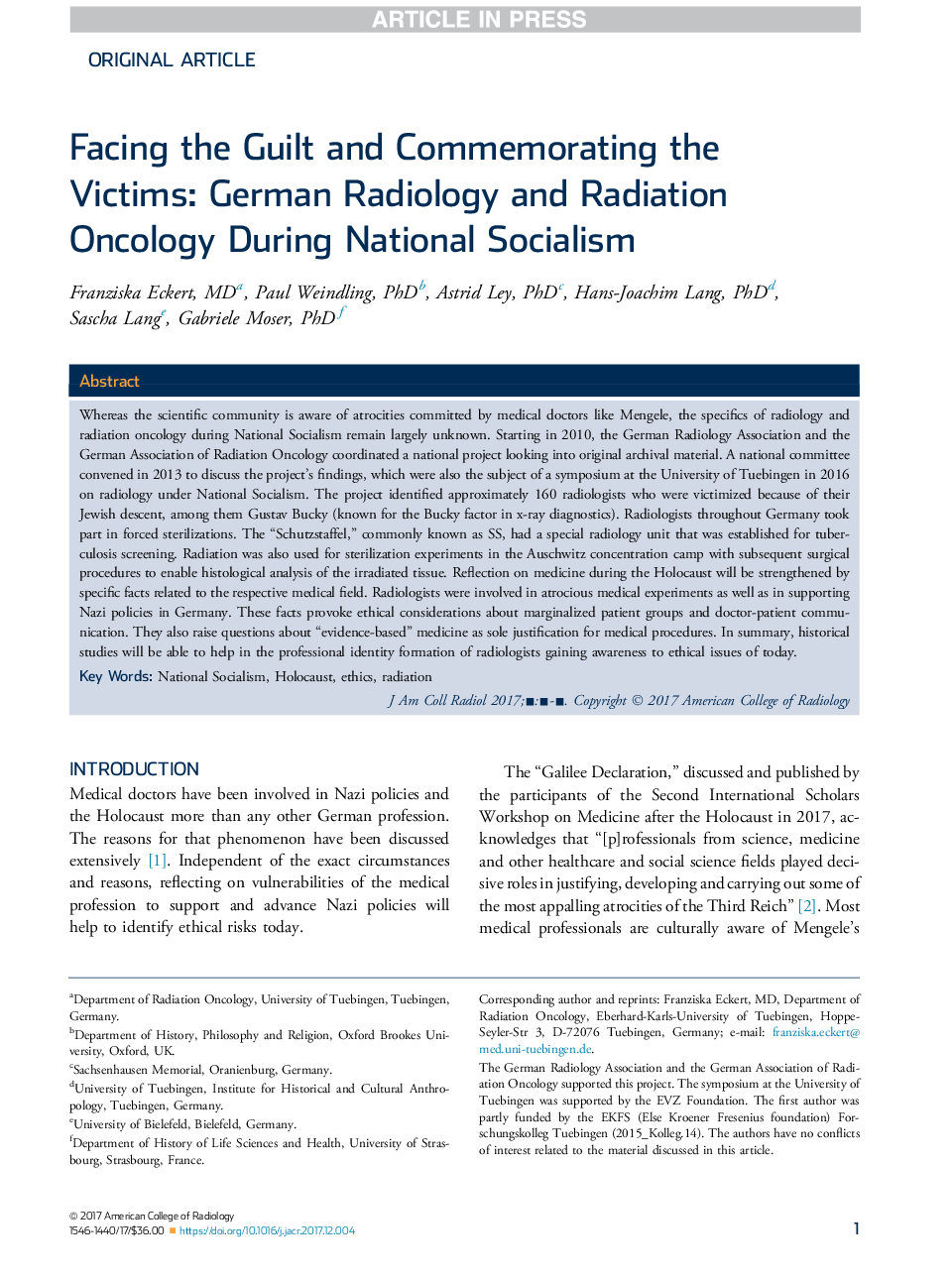ترجمه فارسی عنوان مقاله
در مواجهه با گناهان و تجلیل از قربانیان: رادیولوژی و رادیولوژی رادیو آلمان در طول سوسیالیسم ملی
عنوان انگلیسی
Facing the Guilt and Commemorating the Victims: German Radiology and Radiation Oncology During National Socialism
| کد مقاله | سال انتشار | تعداد صفحات مقاله انگلیسی |
|---|---|---|
| 133760 | 2018 | 5 صفحه PDF |
منبع

Publisher : Elsevier - Science Direct (الزویر - ساینس دایرکت)
Journal : Journal of the American College of Radiology, Volume 15, Issue 4, April 2018, Pages 669-673
ترجمه کلمات کلیدی
سوسیالیسم ملی، هولوکاست، اخلاق، تابش،
کلمات کلیدی انگلیسی
National Socialism; Holocaust; ethics; radiation;

